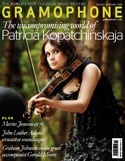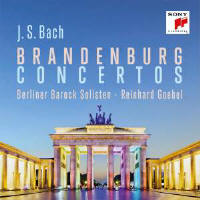Texte paru dans: / Appeared in: |
|
|
Outil de traduction (Très approximatif) |
|
|
Reviewer:
Lindsay
Kemp
Has he mellowed for this new recording with the modern instruments of the Berliner Barock Solisten? Well, yes, that No 3 finale has slackened ever so slightly, as to a more serious degree has No 6. But if you imagined that was just the natural way of things as an artist gets older, prepare to discover that many of the other movements are even quicker than they were with MAK. Already in the first of No 1 we are in unnerving territory but it is in the slow movements of Nos 1, 2 and 4, some of which are almost a minute faster than before, that we can see that Goebel is still an iconoclast who never sleeps. He doesn’t explain his reasons for such pressing tempos; but while I fear some listeners may never get over them, a simple reset of the ears is all that is needed to hear Goebel’s new one-in-a-bar manner as surprisingly gentle and restful. So there is method in his madness. The sound of it is different from the earlier recording, of course, even though perhaps only the oboes are easily recognisable as modern rather than period, while the effortless ease of Reinhold Friedrich’s high trumpet-playing in No 2 is a different sort of giveaway. In ensemble the group makes a splendid sound (huge in No 6!), though the acoustic of the Jesus-Christus-Kirche robs the texture of the analytical clarity offered by MAK’s typically 1980s studio balance. Otherwise, Goebel’s approach has the familiar hallmarks: chiselled phrasing, sudden endings, lunging slurred notes here and there, and driving rhythms where you would least expect them (for instance, the Menuetto of No 1). One thing is for certain: his interpretational thinking hasn’t got any lazier for the passing of 30 years.
The standard of playing of the
Berliners, built largely of musicians from the Berlin Philharmonic and the
Akademie für Alte Musik, is excellent. Maybe with its oddities this is not a
Brandenburg recording to favour over all others, but then such a thing
probably doesn’t exist. |
|




